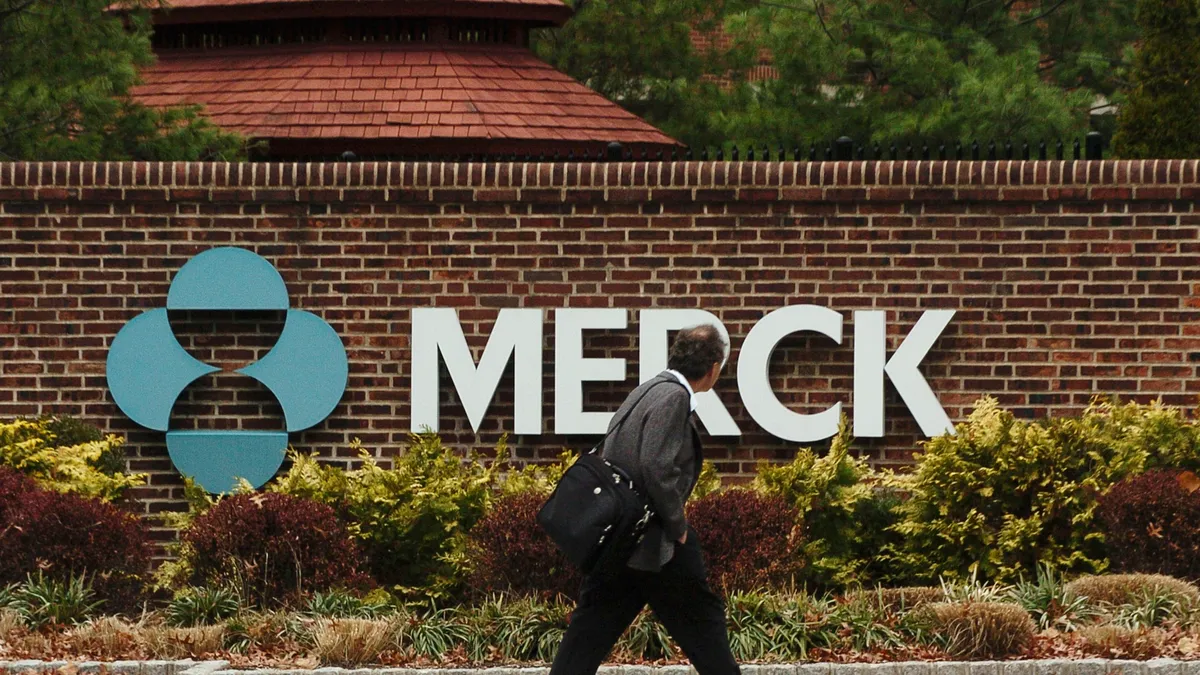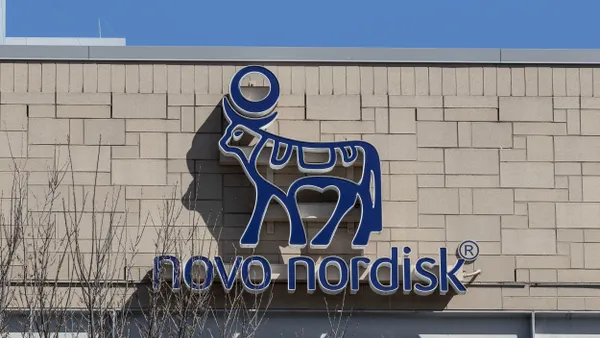With new, positive data in hand, Merck & Co. plans to move its cardiovascular drug Winrevair into late-stage testing as a treatment for a condition often caused, at least in part, by high blood pressure.
This condition — known as heart failure with preserved ejection fraction, or “HFpEF” — is common, affecting more than half of the roughly 6.7 million people in the U.S. believed to be living with heart failure. In these people, the heart’s main pumping chamber stiffens over time due to a variety of possible factors, including age, obesity and hypertension. While the chamber still pumps a “normal” amount of blood, patients with HFpEF can experience fatigue, shortness of breath, as well as life-threatening health complications.
The Food and Drug Administration has already approved several medicines for HFpEF, among them AstraZeneca’s Farxiga, Novartis’ Entresto, and Eli Lilly and Boehringer Ingelheim’s Jardiance. Merck has been trying to expand that list with Winrevair, a first-of-its-kind therapy that works by regulating signals from “activin” proteins that spur cell growth and division. In heart failure, the over-production of certain cells, molecules and proteins can harden the organ and impair its function.
On Tuesday, Merck announced Winrevair had hit the main goal of a mid-stage clinical trial that enrolled 164 adults with high blood pressure in their pulmonary arteries caused by HFpEF. The study pitted two different doses of Winrevair against a placebo and, according to Merck, showed that about six months into treatment, the drug provided a “significant and clinically meaningful” improvement to blood flow through the lungs to the heart.
In a statement, Mahesh Patel, vice president of global clinical development at Merck Research Laboratories, said these kinds of blood flow improvements could translate to better outcomes for this patient population.
Merck didn’t release any detailed data, but said it intends to present results at a future scientific meeting. In the meantime, it’s forging ahead into Phase 3 development.
For Merck, which stands to lose patent protection on the world’s top-selling drug, Keytruda, in the not-too-distant future, the success of products like Winrevair is crucial. In 2024, Keytruda accounted for a little over half of the company’s $57.4 billion in pharmaceutical sales.
Merck picked up Winrevair through its $11.5 billion acquisition of Acceleron Pharma back in 2021. The drug is one of 20 “growth drivers” that, by Merck’s estimates, could eventually make up for the expected declines to the Keytruda franchise. The company argues that almost all of these drivers have the potential to generate at least $1 billion in annual revenue and, collectively, their commercial opportunity exceeds $50 billion.
Winrevair first received FDA approval in the spring of 2024, for a separate blood pressure disorder called pulmonary arterial hypertension. Sales of the drug totaled $976 million over the first nine months of this year.
Carter Gould, an analyst at the investment firm Cantor Fitzgerald, wrote in a note to clients that this latest trial win should help Merck’s stock price, especially since investors were ascribing value to Winrevair beyond PAH.
Gould added that, among analysts, the average forecast has annual Winrevair sales peaking at $8 billion to $8.5 billion, with around $1 billion to $2 billion coming from outside of PAH, namely HFpEF.
Merck shares were up more than 3%, to trade above $96 apiece, by late Tuesday morning.















